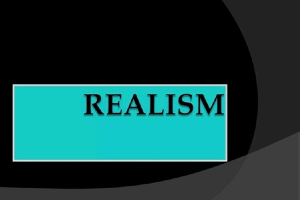In any court of law the world over, if and only if, the country respects its laws, it is said that we talk or speak law in court but not English. English is just the vehicle or tool to convey the law that you are talking. Therefore, the eloquence of one in the spoken English does not guarantee him or her the chance of winning their case if they refuse to successfully relate their fluent English to the stipulations of the relevant laws pertaining to the case laid before the court.
Before touching on the subject matter of this publication, permit me to divulge the mentality of most of my fellow Ghanaians and what goes on in Ghana. In Ghana as vividly known to me, the knowledge of English is the criterion of a man’s great learning. When one speaks fluent English with possibly the English Queen’s accent, although may not know the other subjects, to the Ghanaian, that person is a great learner who has to be revered.
In a court of law, it is agreed that a lawyer’s case or evidence is as good as his brief. Please pardon me if I am unable to cite or quote the legal jargons properly. What then is a brief? “A brief (Old French from Latin "brevis", short) is a written legal document used in various legal adversarial systems that is presented to a court arguing why one party to a particular case should prevail”.
It is also said that “He who alleges must prove”, meaning, the burden of proof lies with the plaintiff, thus, “a party's duty to produce sufficient evidence to support an allegation or argument. Plaintiffs in civil cases typically have the burden of proving their allegations by a preponderance of the evidence”.
However, in the ongoing Supreme Court election 2020 petition filed by former President-cum-Presidential-candidate John Dramani Mahama, he seeks to shift the burden of proof onto the defendant, deducing from the conduct of, and arguments by, his Lead Counsel, Mr Tsatsu Tsikata, presumably a “Mr Ako te Brofo”
Instead of speaking or talking law, citing relevant laws, rules of court, constitutional articles and clauses and precedent case references to buttress his arguments, he could be seen to rap in the Queen’s English to the admiration of the NDC supporters and those in Ghana who believe in the fluency of one’s English as a criterion of that person’s great learning and possibly, his knowledge of the law to winning his cases.
While the Lead Counsels for the 1st and 2nd respondents, Mr Justin Amenuvor and Akoto Ampaw, respectively, were talking law, that of the petitioner was singing English. He had banked his hopes on extracting evidence from the mouths of the 1st and 2nd respondents (defendants) to win the case for his client, the petitioner. Is this not contrary to the legal requirement of the onus of proof being upon the plaintiff?
I totally felt it was wrong to bring in a third witness after the case had started, when Lawyer Tsatsu Tsikata moved a motion or whatever the legal term is, to seek to smuggle in his 3rd witness in the person of Mr Robert Joseph Mettle Nunoo. I could clearly see that the first two witnesses, thus Messrs Johnson Asiedu Nketiah and Dr Kpessa Whyte, had completely flopped in their witnesses hence the petitioner feeling obliged to produce a probably more credible 3rd witness. This in my view as a layperson of the law and legal proceedings was not right. I could see my view strengthened by the statement made by the Lead Counsel for the 1st respondent when he refused to question the 3rd witness when asked by the bench, thus the Supreme Court judges, to question him. Was it to question the 3rd witness or Mr Tsatsu Tsikata? It seems to have escaped my mind. Anyway, he refused by saying, “All this is happening because of the magnanimity of the court.” Magnanimity means kindness or generosity.
However, as man proposes and God disposes, or better coming down to our Akan proverb, “Se wo repe boba ato abo anomaa no, na orepe baabi a obetu asi”. Literally translated into English as, “While you are looking for a stone to throw at the bird, it is also looking for a place to fly to”
While the petitioner was seeking to bring in further witnesses through what I may say as the backdoor to better his evidence, with himself refusing to mount the witness box, the respondents were also planning to take to a trajectory or a tangent quite opposite to the aspirations of the petitioner. Were they being evasive? No, they were adhering to the relevant laws as they are permitted.
They refused to mount the witness box to supply the relevant evidence as expected by the petitioner. They acted within the limit of the law!
It is not your knowledge of English and your fluency in it that determines your chances of winning a case in court but how you apply the relevant laws and case references to your case.
For the public information, I have printed off a copy of the CI 47 (Rule of Court) from the internet that I refer to when the lawyers cite any pertinent Orders and Rules as are contained in the CI 47 to support their arguments. (CI means Constitutional Instrument).
Opinions of Thursday, 11 February 2021
Columnist: Rockson Adofo















